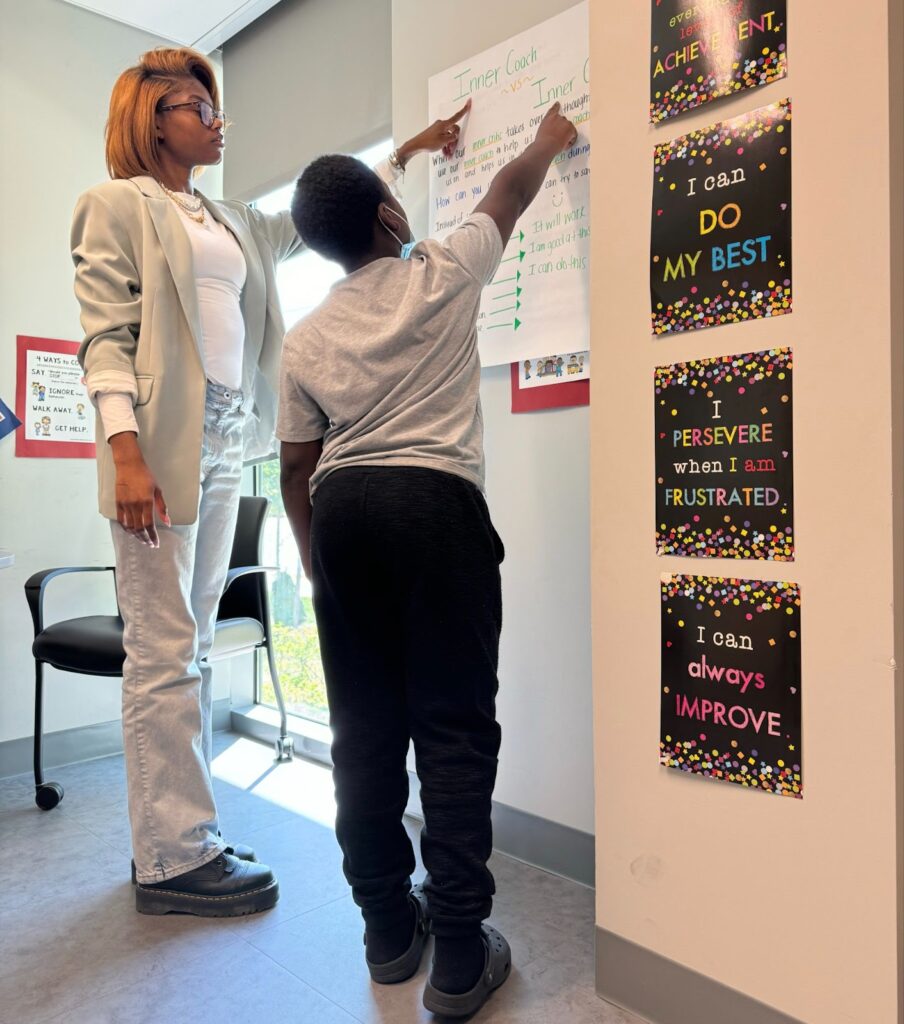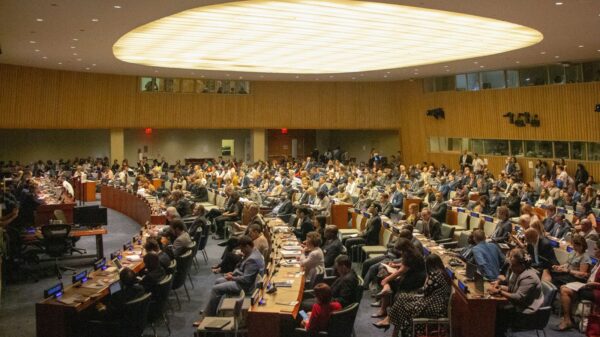
In the halls of the Howard University School of Social Work (HUSSW), one Master’s student is receiving positive feedback for her approach to tackling one of education’s most persistent challenges: truancy.
Truancy refers to the amount of unexcused absences a student accrues over a school year. According to the DC Office of the State Superintendent of Education, the truancy range for grade levels lower than high school was from 28 percent to 34 percent in 2023, compared to 13.6 percent nationally.
Jasmin Miller, a graduate student, HUSSW student council president and 2023-24 Founders Fellow, is emerging as a voice offering solutions to address chronic absenteeism, particularly in the aftermath of the pandemic.
The Founders Fellows program, hosted by the School of Social Work, supports one graduate student per year in their studies, via free tuition and a stipend. It also facilitates the development of an intervention that addresses family issues within the Black community.
Miller was selected by her professors, went through a series of interviews and was then chosen over 10 other applicants.
Her recent research sheds light on the complexities of truancy from a sociological standpoint and offers a perspective emphasizing incentivized attendance-based programming over punitive measures.
“I felt like there could be other ways to help these families instead of jumping to call CFSA, jumping to report them to MPD,” she said.
According to the District of Columbia Public Schools (DCPS), children can only miss 10 days throughout the school year before attendance counselors and in-school social workers are mandated to contact CFSA, the Child and Family Services Agency in DC.
However, while policy discussions often lean towards punitive measures, Miller’s research takes a different route, advocating for proactive and positive reinforcement strategies.
As part of Miller’s graduation requirement, she interned at Charles H. Houston Elementary School (Houston ES), a Spanish immersion school, which served as the research grounds for her 8-week-long case study.
The research itself took five months spanning from last November to this March.
Five students were involved in the study, after taking a preliminary assessment created by Miller. The students were in second, fourth and fifth grade and were chosen based on their previous truant behaviors.
Although five as a sample size is considered small in the sociological space, according to Miller, it allowed her to focus on these children more closely, identify their needs on a more attentive level and make providing the incentives more cost-effective.
“I think it was feasible for me to do that and only focus on five students because I was funding this myself,” she said. “I was buying these incentives for these kids myself. If I’d had like 10 to 12 kids I wouldn’t have had any money for myself.”
The incentives Miller used in her study were built off a program that Houston ES had already implemented with the students called ‘Bull Bucks,’ a fake currency that students can use at the school’s store.
Every day a student came to school, they earned a Bull Buck, but not the study’s grand end-of-week prize, which was larger and the most sought after, according to Miller.
“I let the students decide what they wanted and they chose chips and juice,” she said. “Kids are very easy to please.”
The first week was candy and as the weeks progressed, the incentives got larger. Toward the end of the study, all the participants were treated to a lunch of their choice with some students choosing options like Chipotle or Chick-Fil-A.

Martez Jennings, Howard alumnus and Houston ES’s first-ever attendance counselor, agreed that food-based incentives got the best response from students and motivated them to come to school.
“Students respond well to snacks,” he said. “I’ve learned that incentives that include some sort of edible treat tend to be the most successful in motivating students to attend school regularly.”
Jennings conducts his version of incentive-based attendance programs, famously using bingo, and minimally helps Miller with her research via printing materials and methodizing.
According to the results of Miller’s research, many factors contribute to a child being labeled as chronically absent, but the biggest one is parent involvement or lack thereof.
“When speaking to the kids and learning about their situations, some of the kids told me their parents don’t wake them up for school in the morning,” Miller said.
One of her research methods in the pre assessment phase was sit-downs with the kids to give them a safe space to open up about challenges that may affect their ability and willingness to attend school.
Jennings also agreed that while incentive-based programming is meant to help the children, it can indirectly help with parental involvement.
“They push their parents to get them to school and on time so they can get prizes,” he said. “Students that want access to rewards are the best motivators for parents.”
Hope Blue, a parent of four boys at Houston ES who previously had attendance issues, agreed that incentives helped.
While she doesn’t credit the school explicitly for the attendance improvement, she did acknowledge the incentives “kinda [made] the students want to come to school more because of the activities.”
Moving forward, Miller said she wants to encourage the use of individualized plans rather than the current 10 absences until the reporting mandate. That way, problems like chronic illnesses and personal family matters have a chance to be addressed on an interpersonal basis before governmental agencies become involved.
“We can target these families and these students in different ways and then when the parents and students are not compliant then we can make that report to CFSA for educational neglect,” she said. “We’re worried about the kids but there’s different ways we can target this issue.”
Jennings also added that in a post-COVID environment, more parents are fearful of their children being and becoming ill to a traumatized point.
“Post COVID, we need to understand that families are going to keep students home more often when sick, for fear of something more serious,” he said. “We need to be aware of this and respond to these concerns with understanding and empathy. We can encourage student attendance while also respecting the reasons they may not attend.”
As schools are becoming more receptive to adding additional support staff to help students and families combat truancy, Miller’s research advisor and professor at Howard, Dr. Sandra Jeter, believes individuals like Miller are who the youth needs fighting for them.
“She’s always been very assertive in her advocacy which is especially important when you’re advocating for the youth,” Jeter said. “Their voices are not always respected.”
Upon graduating, Miller said she plans to obtain her Master of Social Work license and work as a mental health clinician in schools with high populations of marginalized students.
Copy edited by D’ara Campbell













